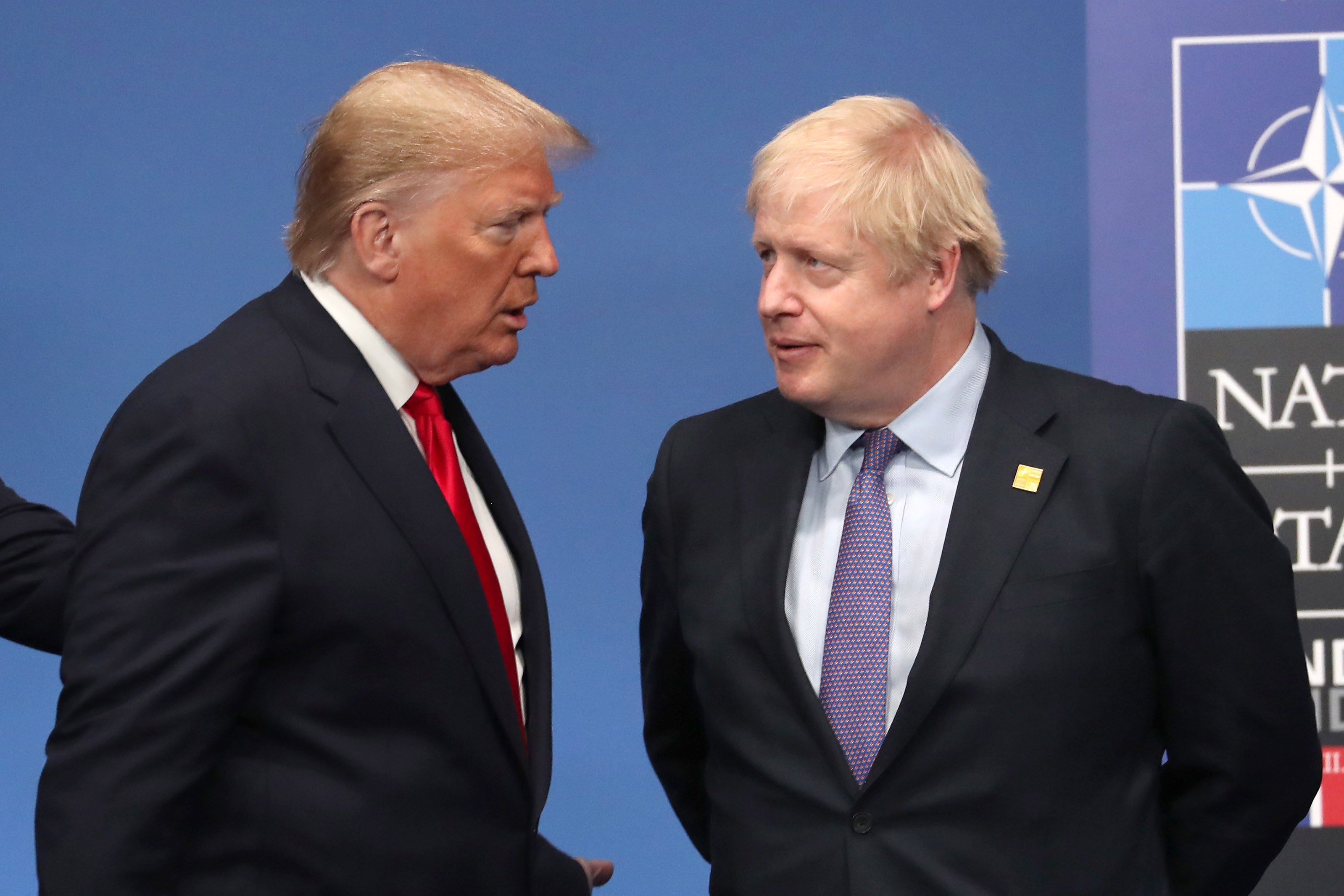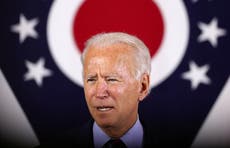Your support helps us to tell the story
From reproductive rights to climate change to Big Tech, The Independent is on the ground when the story is developing. Whether it's investigating the financials of Elon Musk's pro-Trump PAC or producing our latest documentary, 'The A Word', which shines a light on the American women fighting for reproductive rights, we know how important it is to parse out the facts from the messaging.
At such a critical moment in US history, we need reporters on the ground. Your donation allows us to keep sending journalists to speak to both sides of the story.
The Independent is trusted by Americans across the entire political spectrum. And unlike many other quality news outlets, we choose not to lock Americans out of our reporting and analysis with paywalls. We believe quality journalism should be available to everyone, paid for by those who can afford it.
Your support makes all the difference.It goes without saying that a change of administration in Washington would have far-reaching consequences across the world. But what will the impact of the US election result be on the UK's Brexit project?
Donald Trump has called himself "Mr Brexit" and has aligned himself politically with figures like Nigel Farage and Boris Johnson. In many respects the prime minister could not hope for a more sympathetic ally in the White House than the one he currently has.
Joe Biden's instincts are in many respects the opposite: and he's already shown himself capable of intervening to criticise the UK over its relationship with Europe. Last month month he took time out of the presidential election campaign to admonish Boris Johnson over the internal market bill.
The Democratic nominee and poll frontrunner warned that the Good Friday agreement could not become "a casualty of Brexit", explicitly warning: “Any trade deal between the US and UK must be contingent upon respect for the agreement and preventing the return of a hard border. Period.”
He was reacting to the prime minister's back-pedalling on the question of the Irish border, which has enraged Brussels and Dublin. Washington could soon be added to that list.
Biden is a politician with a strong sense of his Irish heritage, and his intervention should be seen in the context of his predecessor Bill Clinton's active role in brokering the Good Friday Agreement. Where they register, interventions like his play well in the US: they look statesman-like, they project American power, and they are viewed by the public as standing up for Ireland, which has vast cultural capital and popular goodwill in America.
Reports that Biden is considering a visit to Ireland to stress his support for the European position will send a shiver down spines in Downing Street. It is a sign that the would-be president wants to be seen to lead on the issue and is willing to make a fuss about it.
A Biden intervention would blow a hole in the picture No.10 is painting for Brexit voters: Britain breaking out of a petty, insular European club to stand with the rest of the world. An important part of the rest of the world would in fact be revealed to be standing with Europe on this issue.
Of course, it's one thing to lay out your views during a campaign, especially when they resonate with voters. Things can look very different from the Oval Office when your job is to act in US interests.
Take Trump, for instance: a supporter of Brexit if there ever was one. That didn't stop him humiliating Theresa May over her withdrawal agreement during a state visit, warning that he would pull the plug on trade deals if she didn't drop her plan. Ultimately it was the interests of the United States driving the president, rather than any sense of being on the same team as his ideological bedfellow. He wanted access to British markets on favourable terms.
No.10 will be hoping that that's what's driving Joe Biden too, and that if he becomes president he will believe the US interests lie in striking a trade deal with the UK.
That's probably a long shot: an US-UK agreement's economic benefit would be utterly minimal for either side. In the UK the Treasury reckons 0.16 per cent of GDP. For the US, as the larger partner, the benefit will look even smaller.
Where an agreement is important is politically: but then only in the UK. A US agreement would be something Boris Johnson could chalk up for a political win: a supposed illustration of the deals Britain can do outside the EU. But if he is emphatically told he can't have a trade deal, then opponents could point and laugh.
But no such dynamic exists in the US, where barely anyone outside of policy and lobbying circles is even aware of the prospect of an agreement with Britain. This is not headline stuff on CNN or Fox News.
For Donald Trump, whose entire brand was built on “doing deals”, whatever they may be, an agreement was of some interest. But this is not the case for president Joe Biden, who could certainly take or leave it. As such, he would be free to wield the prospect of one as a carrot and stick. This would not be a comfortable position for Boris Johnson.



Join our commenting forum
Join thought-provoking conversations, follow other Independent readers and see their replies
Comments